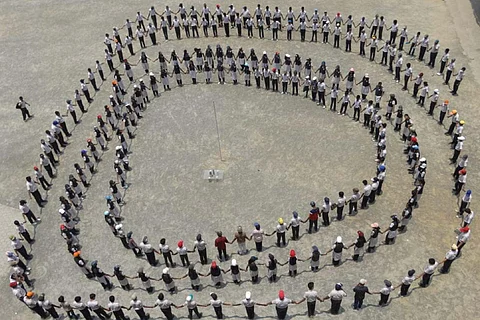

Residents of Bengaluru, on Tuesday, April 25, will be treated to a unique and rare astronomical event known as the ‘Zero Shadow Day’ (ZSD). During the phenomena, for a full minute at 12:17 pm, shadows will disappear from all objects that are perpendicular to the ground. To help the public understand this fascinating phenomenon, the Indian Institute of Astrophysics (IIA) campus located in Koramangala will be hosting a talk. The event will provide an explanation of the science behind the disappearance of shadows during ZSD.
Zero Shadow Day phenomenon occurs when the Sun comes directly above the equator. This leads to the Sun rays falling perpendicular to the Earth’s surface. With the Sun directly overhead, no vertical objects on the Earth’s surface will cast any shadow.
“On April 25, 2023, the Sun reaches exactly overhead at (12:17 pm) in Bengaluru and at all places along the 130 north Latitude. The shadow of any vertical object would disappear at that instant. Zero Shadow Day occurs on different days in places away from 130 latitude,” Jawaharlal Nehru Planetarium said in a press statement adding the science centres in coordination with the planetarium, are organising various science activity programs across Karnataka, in a bid to spread awareness. These activities will include workshops for students, poster exhibitions, the use of telescopes to view surface features of the Sun, and the use of solar scopes to observe sunspots.
According to the Astronomical Society of India (ASI), the phenomenon of ZSD happens in places between the Tropic of Cancer and the Tropic of Capricorn and that the same occurs in India in multiple places located between +23.5 and -23.5 degrees latitude, twice a year. Even if we miss the ZSD on Tuesday, Bengaluru will witness the phenomenon once again on August 18. IIA Koramangala campus is organising a talk on Tuesday about the ZSD concept, along with a hands-on demonstration.